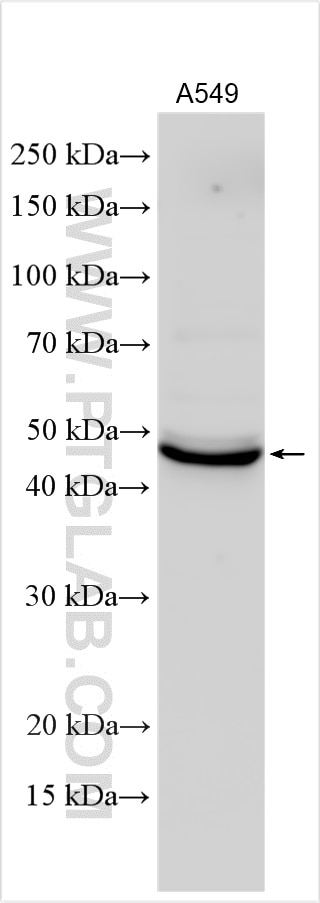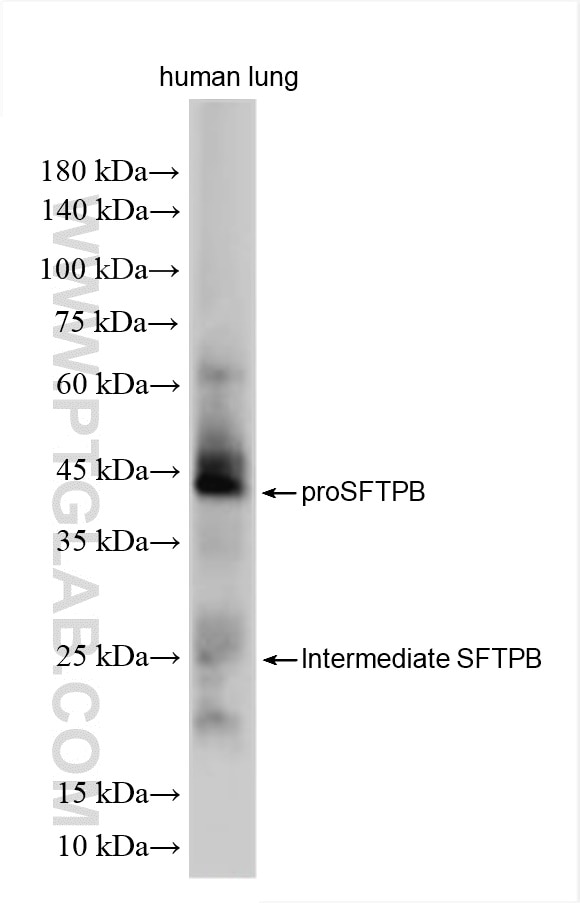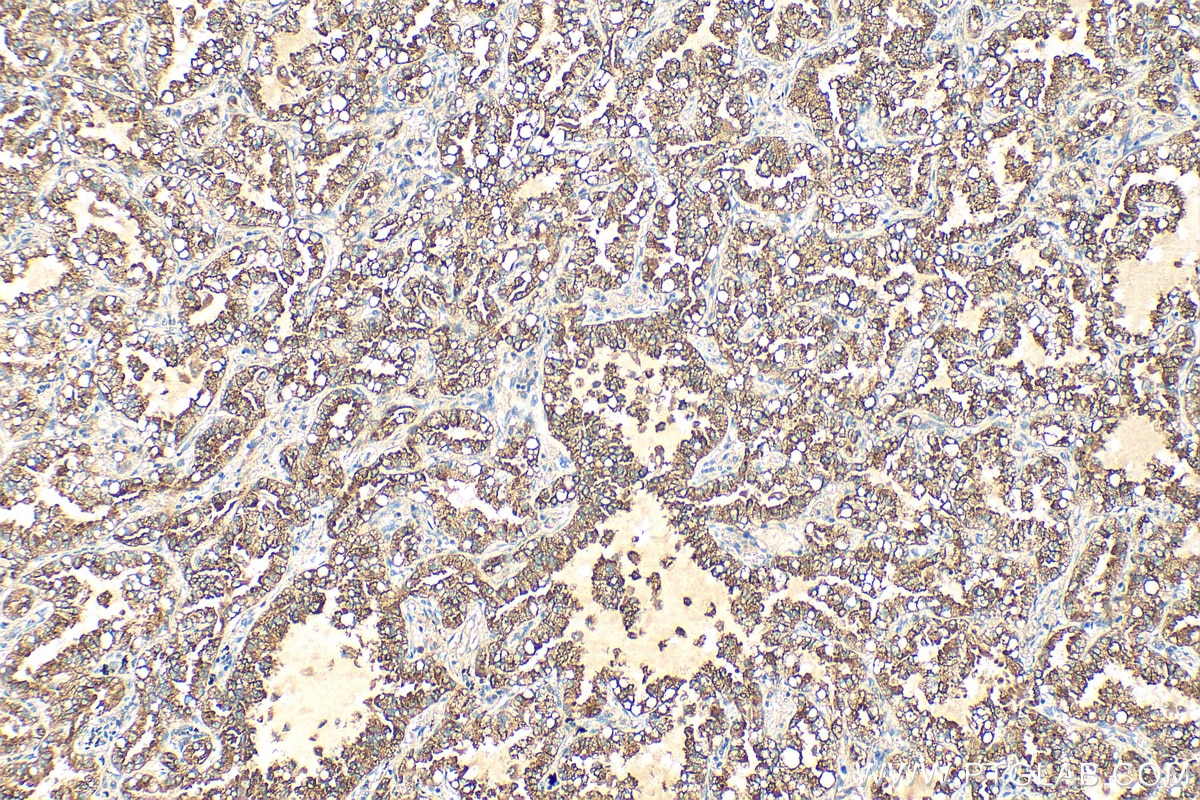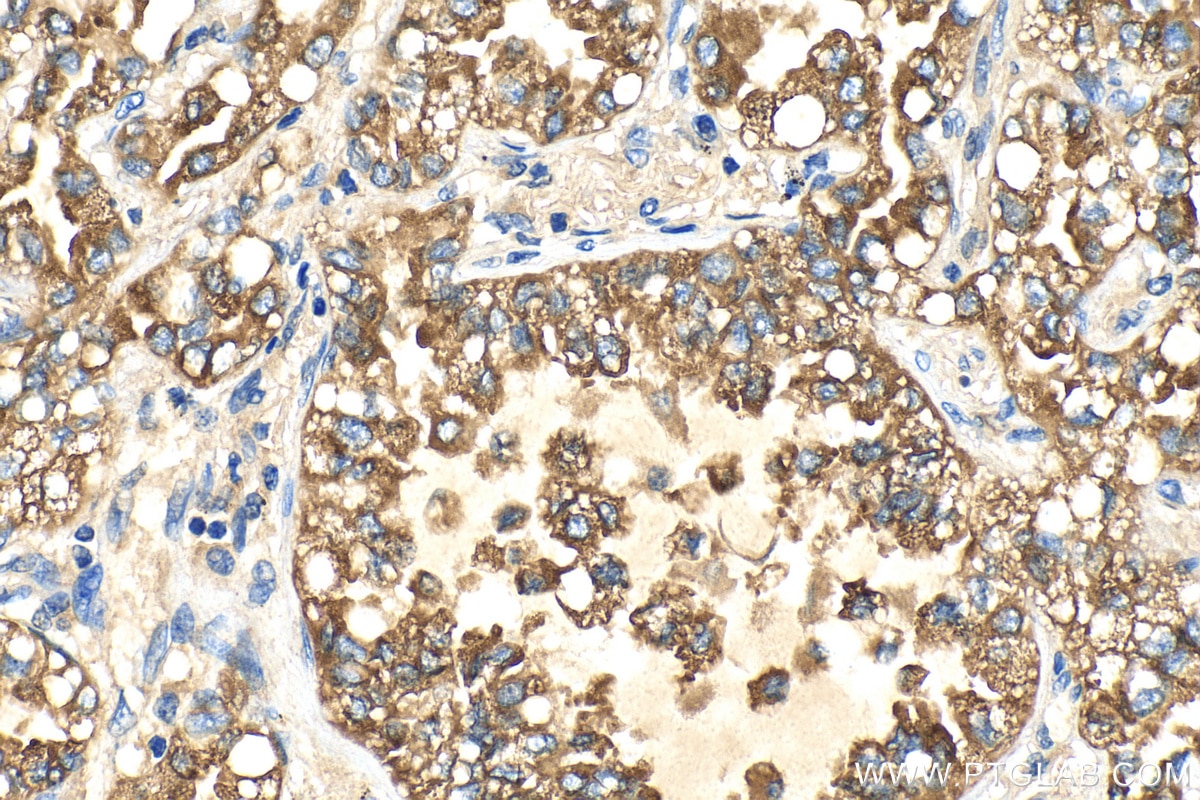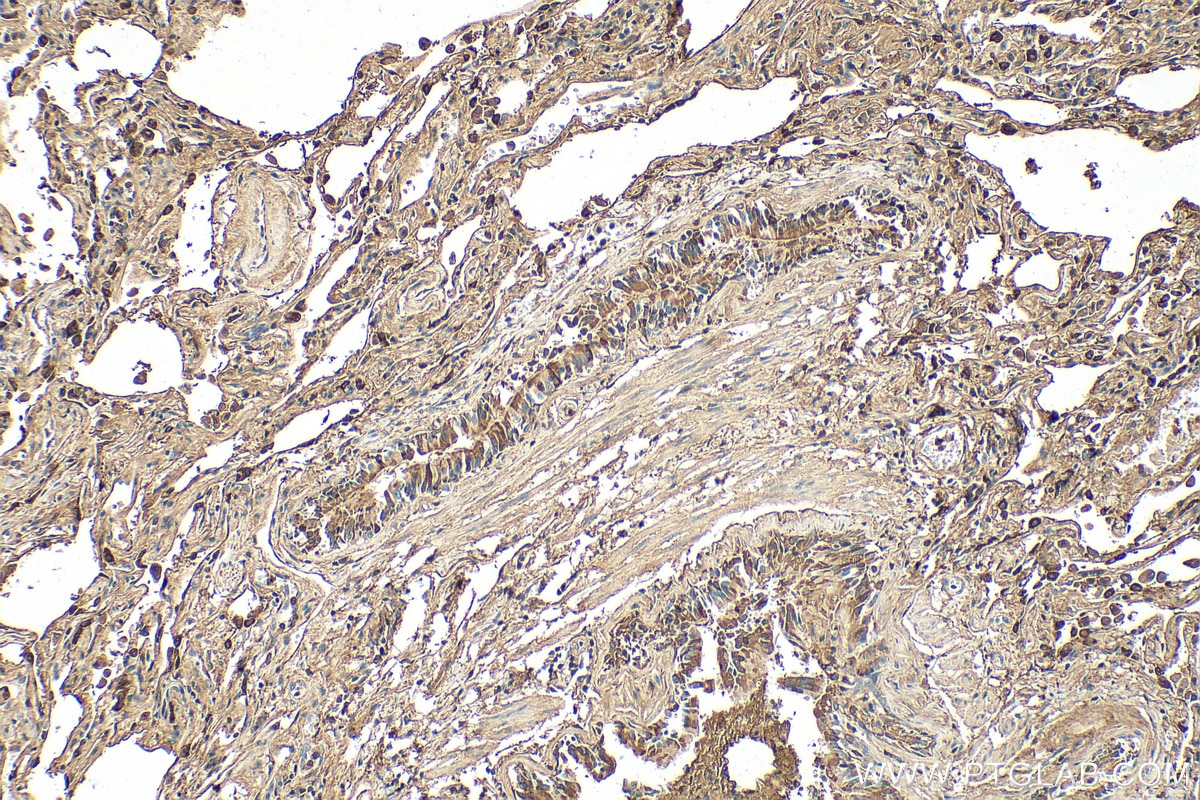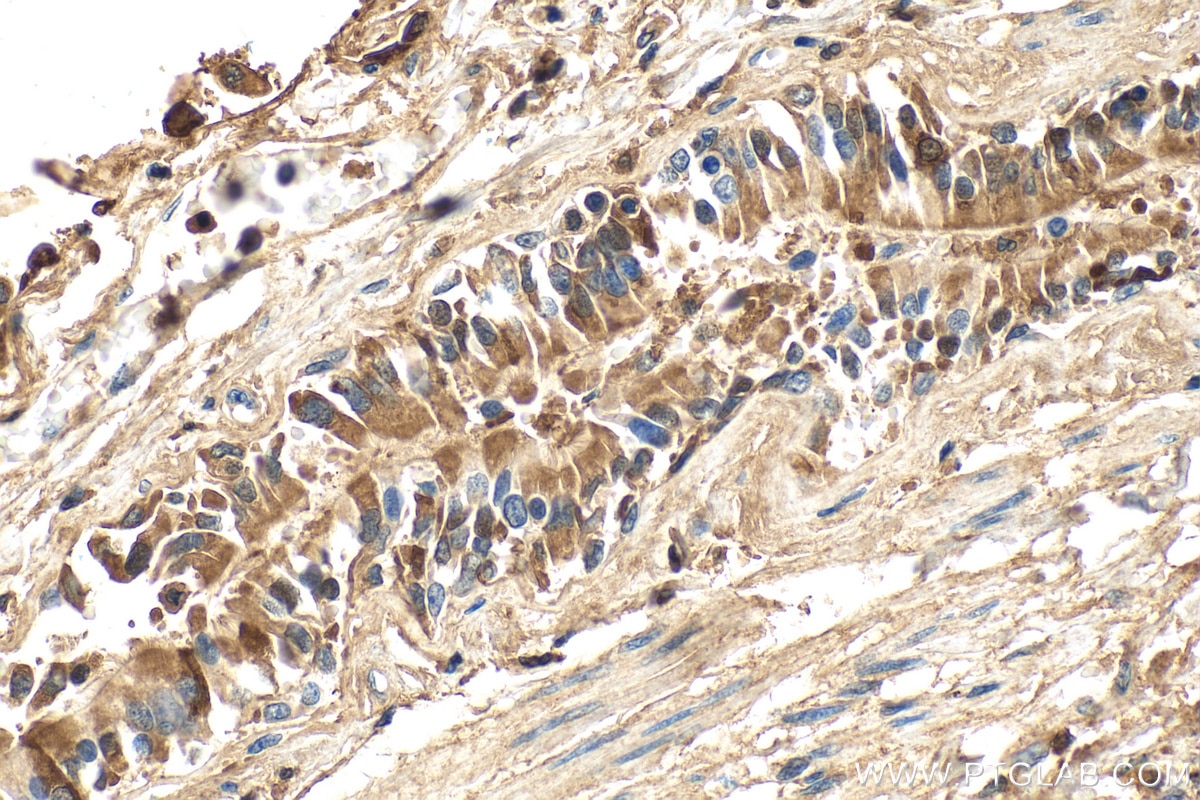- Phare
- Validé par KD/KO
Anticorps Polyclonal de lapin anti-SFTPB
SFTPB Polyclonal Antibody for WB, IHC, ELISA
Hôte / Isotype
Lapin / IgG
Réactivité testée
Humain et plus (1)
Applications
WB, IHC, IF, ELISA
Conjugaison
Non conjugué
N° de cat : 13664-1-AP
Synonymes
Galerie de données de validation
Applications testées
| Résultats positifs en WB | tissu pulmonaire humain, cellules A549 |
| Résultats positifs en IHC | tissu de cancer du poumon humain, tissu pulmonaire humain il est suggéré de démasquer l'antigène avec un tampon de TE buffer pH 9.0; (*) À défaut, 'le démasquage de l'antigène peut être 'effectué avec un tampon citrate pH 6,0. |
Dilution recommandée
| Application | Dilution |
|---|---|
| Western Blot (WB) | WB : 1:500-1:2000 |
| Immunohistochimie (IHC) | IHC : 1:200-1:800 |
| It is recommended that this reagent should be titrated in each testing system to obtain optimal results. | |
| Sample-dependent, check data in validation data gallery | |
Applications publiées
| KD/KO | See 1 publications below |
| WB | See 4 publications below |
| IHC | See 4 publications below |
| IF | See 3 publications below |
Informations sur le produit
13664-1-AP cible SFTPB dans les applications de WB, IHC, IF, ELISA et montre une réactivité avec des échantillons Humain
| Réactivité | Humain |
| Réactivité citée | Humain, souris |
| Hôte / Isotype | Lapin / IgG |
| Clonalité | Polyclonal |
| Type | Anticorps |
| Immunogène | SFTPB Protéine recombinante Ag4576 |
| Nom complet | surfactant protein B |
| Masse moléculaire calculée | 381 aa, 42 kDa |
| Poids moléculaire observé | 43 kDa |
| Numéro d’acquisition GenBank | BC032785 |
| Symbole du gène | SFTPB |
| Identification du gène (NCBI) | 6439 |
| Conjugaison | Non conjugué |
| Forme | Liquide |
| Méthode de purification | Purification par affinité contre l'antigène |
| Tampon de stockage | PBS with 0.02% sodium azide and 50% glycerol |
| Conditions de stockage | Stocker à -20°C. Stable pendant un an après l'expédition. L'aliquotage n'est pas nécessaire pour le stockage à -20oC Les 20ul contiennent 0,1% de BSA. |
Informations générales
Pulmonary surfactant-associated protein B(SFTPB) also named SFTP3, is a hydrophobic peptide that facilitates the formation and maintenance of a phospholipid-rich film at the alveolar air-liquid interface. SP-B is necessary for postnatal lung function. SFTPB as a risk biomarker for lung cancer. (PMID:36460583).
Protocole
| Product Specific Protocols | |
|---|---|
| WB protocol for SFTPB antibody 13664-1-AP | Download protocol |
| IHC protocol for SFTPB antibody 13664-1-AP | Download protocol |
| Standard Protocols | |
|---|---|
| Click here to view our Standard Protocols |
Publications
| Species | Application | Title |
|---|---|---|
Exp Hematol Oncol Downregulation of pro-surfactant protein B contributes to the recurrence of early-stage non-small cell lung cancer by activating PGK1-mediated Akt signaling
| ||
Int J Mol Sci Kub3 Deficiency Causes Aberrant Late Embryonic Lung Development in Mice by the FGF Signaling Pathway. | ||
Lab Invest Liquid Biopsy in Lung Cancer: Nano-Flow Cytometry Detection of Non-Small Cell Lung Cancer in Blood | ||
Environ Toxicol Silica nanoparticle exposure inhibits surfactant protein A and B in A549 cells through ROS-mediated JNK/c-Jun signaling pathway. | ||
Heliyon Therapeutic and prognostic effect of disulfidptosis-related genes in lung adenocarcinoma | ||
Int Immunopharmacol The impact of POSTN on tumor cell behavior and the tumor microenvironment in lung adenocarcinoma |
